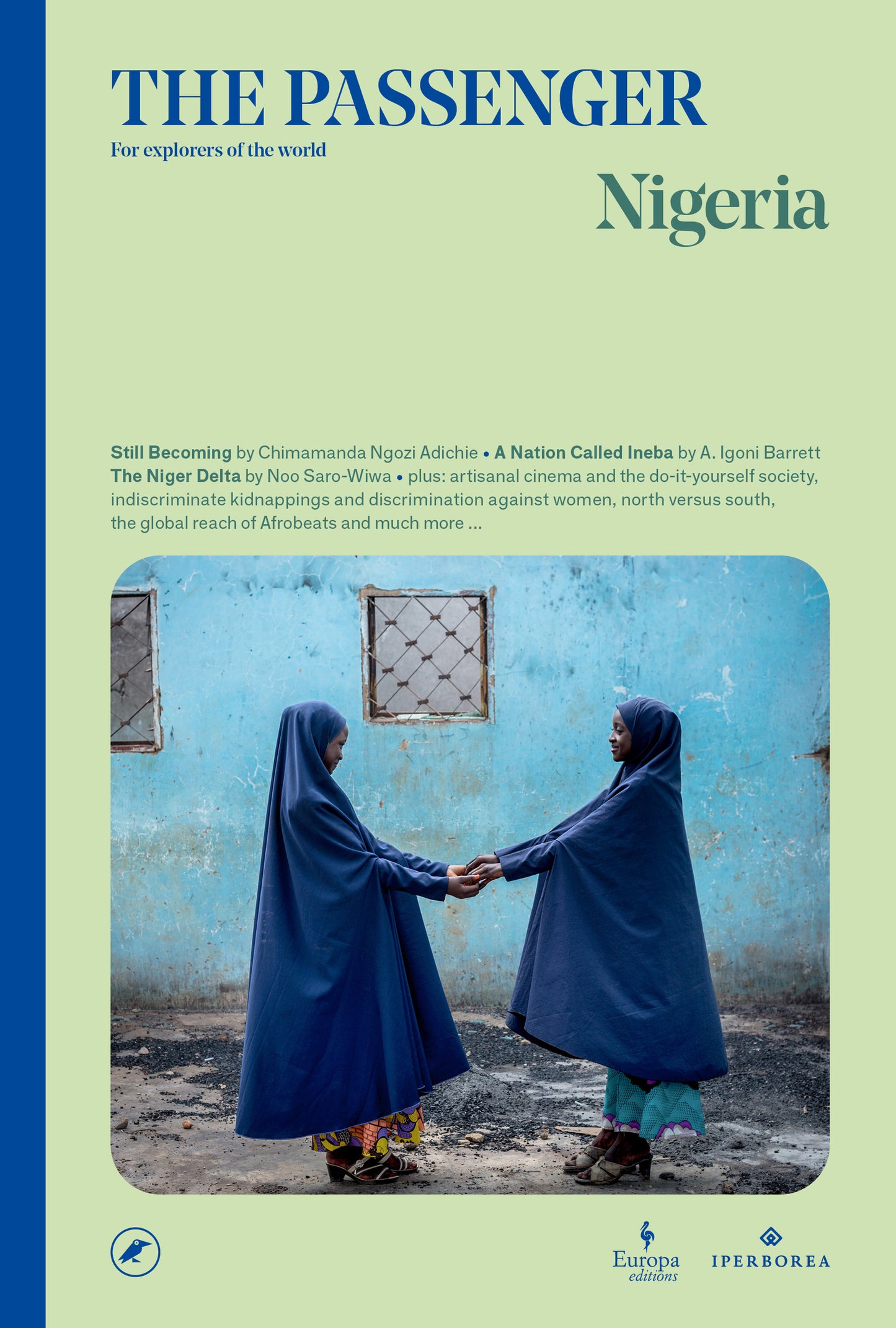AA.VV.
The Passenger: Nigeria
The Passenger: Nigeria
Couldn't load pickup availability
Fully-illustrated, The Passenger collects the best new writing, photography, art and reportage from around the world.
IN THIS VOLUME: Still Becoming by Chimamanda Ngozi Adichie・A Nation called Ineba by A. Igoni Barrett・The Niger Delta by Noo Saro-Wiwa・plus: independent cinema and the do-it-yourself society; indiscriminate abductions and discrimination against women; the discrete charm of repair shops and the irresistible fascination with Afrobeat, and much more…
Since gaining independence Nigeria has been in a state of permanent crisis. Even the arrival of democracy in the 1990s failed to bring much improvement. It’s estimated that over 100 million Nigerians, half of the country’s population, live below the poverty line.
Violence is widespread: from the Boko Haram terrorists to the new armed secessionist movements and the growing scourge of kidnappings. How to live in a country where the state is, at best, absent? With regular power cuts, virtually non-existent health care and education, and where the army, present in every one of the 36 states of the federation, is not able to control the violence?
In these circumstances, the only possible society is a do-it-yourself one that blossoms wherever and however it can.
At the first glimmer of opportunity, Nigerians bring out all their dynamism, entrepreneurial skills, and inventiveness. They develop apps to get around the inaccessibility of the banking system, use solar power to render themselves independent from the unreliable public energy grid, sometimes even resorting to artisanal (but deeply polluting) methods to refine oil/petrol, embrace e-commerce and social media to sell their goods, while films produced on shoestring budgets, books and music find success all over the world.
Nigeria’s energy is unlike that of any other African country. As the generation of generals who won the civil war and governed the country for 60 years dies out, and younger citizens refuse to ignore injustice and violence, the hope is born that a new, vibrant generation will take the country’s future into their hands. And, as they are accustomed to doing, fix it.
Share


